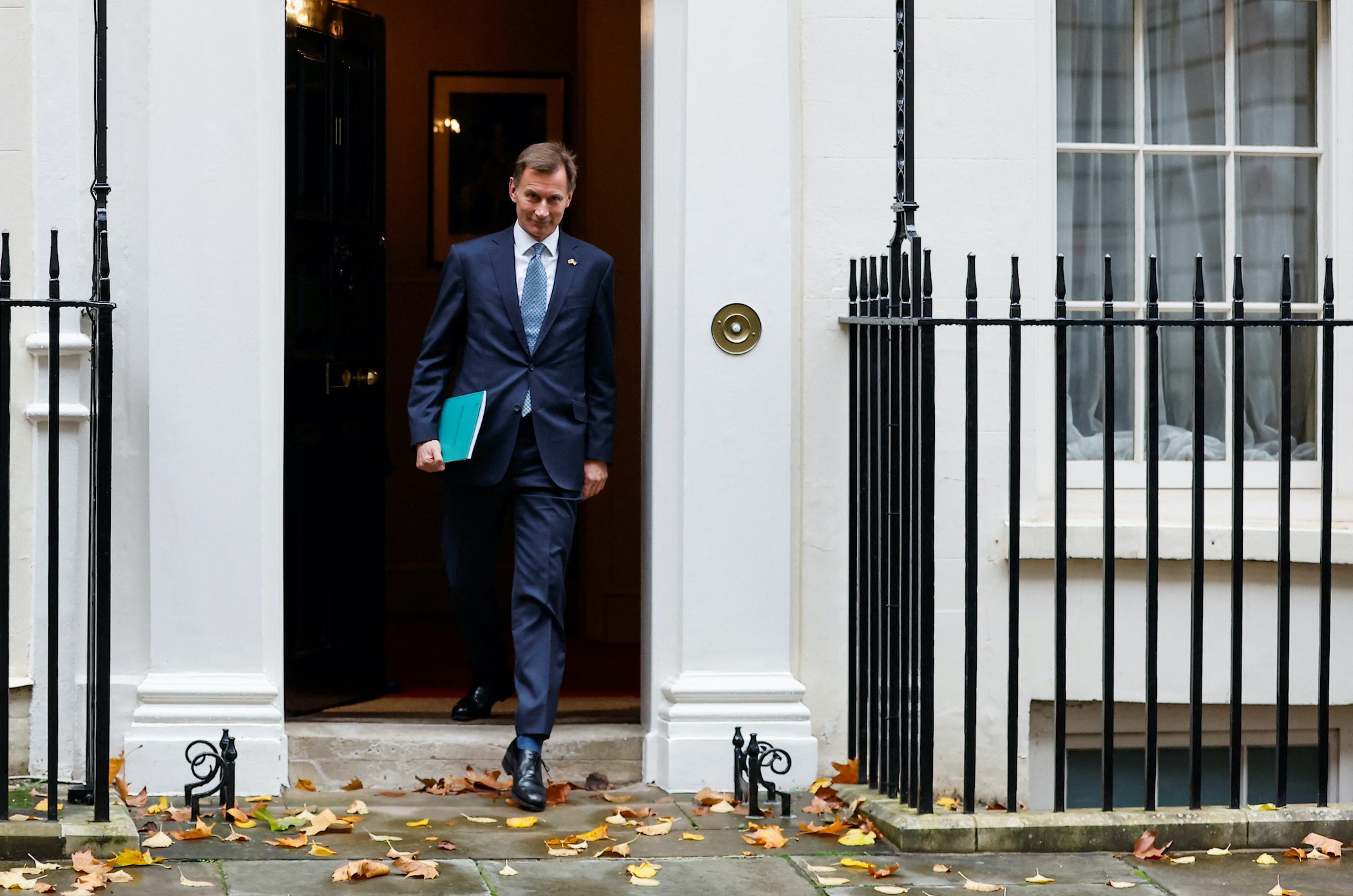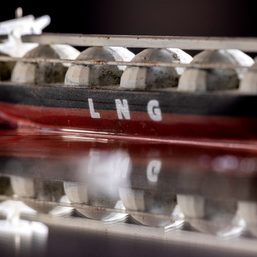SUMMARY
This is AI generated summarization, which may have errors. For context, always refer to the full article.

LONDON, United Kingdom – British finance minister Jeremy Hunt on Thursday, November 17, unveiled plans to increase a windfall tax on oil and gas companies and extend it to power generation firms in an effort to raise tens of billions of pounds to plug a major hole in public finances.
The measures were among a string of tax increases and tighter public spending in a tough budget plan announced by Hunt in parliament.
Soaring oil and gas prices in the wake of Russia’s invasion of Ukraine have sent household energy bills to record highs, triggering Britain’s worst cost-of-living crisis in generations.
Hunt said the levy on oil and gas companies would be increased to 35% from its current rate of 25% and extended until the end of March 2028. This brings the total tax on the sector to 75%.
The windfall tax will be expanded to electricity generators with a levy of 45% being applied from January 1 to revenues the government deems “extraordinary,” from low carbon power generators such as wind and nuclear.
The two measures are expected to raise around 14 billion pounds for the 2023-2024 fiscal year, a treasury document showed.
Shares in British renewable power generators SSE and Drax had risen around 1.5% and 5.4% respectively by the close of London trading as analysts said the tax was less onerous than feared.
SSE said a well-designed levy on extraordinary profits was a reasonable measure.
“The level of certainty which comes from the announcement this afternoon will be welcomed,” said Shah Jahan Khandokar, partner at law firm McDermott Will & Emery.
Shares in Centrica, which owns oil and gas production assets, 20% of Britain’s nuclear fleet, and Britain’s largest energy supplier British Gas, rose 5.4%.
Currently the cost of producing electricity from gas-fired power stations is usually the benchmark for setting the wholesale electricity price that helps to determine how much people pay for their energy.
This means generators of renewable and nuclear plants can benefit from high wholesale prices.
Treasury documents show the 45% tax on low-carbon power generators would apply to revenue made on power generation at an aggregate price over 75 pounds per megawatt hour (MWh).
Oil and gas windfall
The higher windfall tax on oil and gas producers, known as the Energy Profits Levy, will take effect on January 1 with the government forecasting it would raise 40 billion pounds over the next six years.
The industry body Offshore Energy UK said the tax changes “threaten to drive out investors, drive up [oil and gas] imports, and leave consumers increasingly exposed to global shortages.”
Jefferies analysts, however, said that the extension of the tax’s timeframe to 2028 from the end of 2025 was shorter than initially expected.
Shares of Harbour Energy, the largest North Sea producer, fell 6% while those of newly listed Ithaca Energy dropped 4%.
Shell said in response to the announcement that “the energy sector needs to have confidence that there will now be a stable investment climate following a period of considerable uncertainty.”
Ithaca has previously warned that a further windfall tax risks making field developments in the aging basin “uneconomical.”
Shell plans to spend up to 25 billion pounds ($29.5 billion) in Britain’s offshore wind, low-carbon energy, and oil and gas production over the next 10 years. Rival BP plans to spend 18 billion pounds by 2030 in Britain.
BP previously said it will pay 2.5 billion pounds in tax in Britain this year under the 25% windfall tax.
The government said that it will reduce its investment allowance plan for spending on new oil and gas extraction to 29% of all investment expenditure. – Rappler.com
$1 = 0.8474 pounds
Add a comment
How does this make you feel?






![[Ask The Tax Whiz] Output VAT credit on uncollected receivables: What taxpayers must know](https://www.rappler.com/tachyon/2022/11/tax-papers-hand-shutterstock.jpg?resize=257%2C257&crop_strategy=attention)
![[Ask The Tax Whiz] What’s new on invoicing requirements under the Ease of Paying Taxes law?](https://www.rappler.com/tachyon/2024/06/tax-whiz-receipts.jpg?resize=257%2C257&crop=459px%2C0px%2C720px%2C720px)

![[Ask the Tax Whiz] Withholding tax under Ease of Paying Taxes law](https://www.rappler.com/tachyon/2022/11/tax-papers-shutterstock.jpg?resize=257%2C257&crop=205px%2C0px%2C900px%2C900px)



![[EDITORIAL] US Supreme Court on Trump’s immunity: Punyal sa puso ng Amerika](https://www.rappler.com/tachyon/2024/07/animated-trump-scotus-presidential-immunity-carousel.jpg?resize=257%2C257&crop=263px%2C0px%2C720px%2C720px)

There are no comments yet. Add your comment to start the conversation.